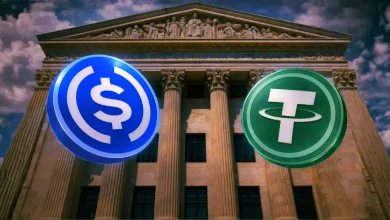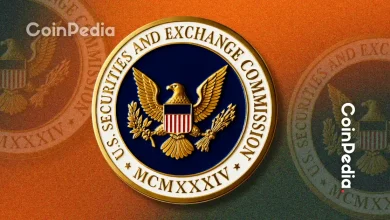
Ripple’s August 7 court victory ends years of SEC litigation, with Chair Paul Atkins pushing for clear, pro-innovation crypto rules.
“Project Crypto” aims to draft a balanced U.S. digital asset framework, aligning with broader moves to integrate crypto into retirement markets.
The closure of the long-running Ripple vs. SEC lawsuit has injected fresh optimism into the crypto industry, with newly appointed SEC Chair Paul Atkins welcoming the win. Ripple’s win on August 7 ends years of uncertainty for XRP holders and sets the stage for what many see as a more constructive era in U.S. digital asset oversight.
Atkins Welcomes the End of Court Battles
Atkins, a known pro-crypto advocate, called the lawsuit’s conclusion a “turning point” for U.S. regulation. Backing Commissioner Hester Peirce’s supportive remarks, he emphasized moving the SEC’s focus “from the courtroom to the policy drafting table.” This marks a sharp departure from the aggressive enforcement-first approach under former Chair Gary Gensler, which drew criticism for stifling innovation through litigation.
Meanwhile, Ripple’s Chief Legal Officer, Stuart Alderoty, thanked SEC Chair Paul Atkins for helping push the U.S. toward clear and fair crypto rules.
Project Crypto in Full Swing
In the same statement, Atkins outlined “Project Crypto,” his vision for the SEC’s next steps, drafting a transparent regulatory framework for digital assets that balances innovation with investor protection. His comments align with broader U.S. political developments, including recent executive actions aimed at integrating digital assets into retirement portfolios and other mainstream financial systems.
Adding to the momentum, President Trump signed an executive order that could allow Americans to use 401(k) retirement plan accounts to invest in cryptocurrencies, private equity, and real estate. This move opens the $12 trillion retirement market to alternative assets.
- Also Read :
- Is XRP Secretly Becoming the Backbone of Global Finance?
- ,
Ripple Case Seen as Catalyst for Reform
For the crypto community, Ripple’s victory is more than just a corporate win; it’s viewed as a symbolic shift in the regulatory space. Experts suggest it could become a model case driving new policy direction, especially if the SEC begins engaging more closely with industry stakeholders. The agency has already organized several crypto-focused roundtables this year, with more scheduled to gather feedback from projects nationwide.
Challenges Remain Despite Optimism
While Atkins’ stance has fueled hopes of a friendlier regulatory climate, the road to reform remains complex. Crafting balanced rules will require collaboration between lawmakers, regulators, and the private sector, a process likely to take years. Still, the sentiment shift is notable, as investors and industry leaders sense a rare alignment between the SEC and crypto innovation.
With the Ripple lawsuit finally behind it, the SEC now faces the challenge and opportunity of shaping a policy environment that could define the next decade of U.S. digital asset growth.
Never Miss a Beat in the Crypto World!
Stay ahead with breaking news, expert analysis, and real-time updates on the latest trends in Bitcoin, altcoins, DeFi, NFTs, and more.
FAQs
Ripple won on Aug 7, ending years of uncertainty and boosting optimism for fair U.S. crypto rules.
A plan to draft transparent U.S. digital asset rules balancing innovation with investor protection.
It marks a shift from litigation to policy-making, fostering SEC and crypto industry collaboration.
Trust with CoinPedia:
CoinPedia has been delivering accurate and timely cryptocurrency and blockchain updates since 2017. All content is created by our expert panel of analysts and journalists, following strict Editorial Guidelines based on E-E-A-T (Experience, Expertise, Authoritativeness, Trustworthiness). Every article is fact-checked against reputable sources to ensure accuracy, transparency, and reliability. Our review policy guarantees unbiased evaluations when recommending exchanges, platforms, or tools. We strive to provide timely updates about everything crypto & blockchain, right from startups to industry majors.
Investment Disclaimer:
All opinions and insights shared represent the author's own views on current market conditions. Please do your own research before making investment decisions. Neither the writer nor the publication assumes responsibility for your financial choices.
Sponsored and Advertisements:
Sponsored content and affiliate links may appear on our site. Advertisements are marked clearly, and our editorial content remains entirely independent from our ad partners.







